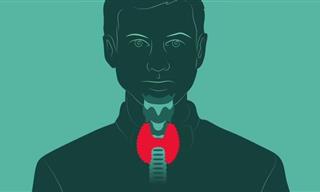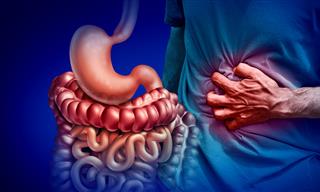Intestinal blockages, also known as bowel obstructions, are a common and potentially serious medical condition that can occur when there is a partial or complete blockage in the small or large intestine. This blockage can prevent the normal passage of food, fluids, and gas through the digestive system, leading to a variety of symptoms and complications. In this article, we will discuss the prevalence of intestinal blockages, the factors that increase the risk of developing this condition, the symptoms to watch out for, and the available treatment options. And, of course, we're going to give you some practical advice on what to do if you suspect you have an intestinal blockage!

How common and how dangerous are intestinal blockages?
Bowel obstructions, also known as intestinal blockages, are a relatively common medical issue that can affect individuals of all ages and backgrounds. According to the American College of Gastroenterology, small bowel obstructions account for approximately 15% of all hospital admissions for acute abdominal pain, while large bowel obstructions constitute a smaller percentage of these cases. This statistic highlights the prevalence of bowel obstructions and the need for increased awareness and understanding of this condition.
The severity of an intestinal blockage can vary widely, ranging from mild cases that may resolve on their own to life-threatening situations requiring immediate medical intervention. Factors influencing the severity of a bowel obstruction include the location of the blockage (whether it is in the small or large intestine), the underlying cause of the obstruction (such as adhesions, tumors, or hernias), and the duration of the blockage.

In some cases, a bowel obstruction may resolve spontaneously without the need for medical intervention. This can occur when the cause of the blockage is a temporary issue, such as a buildup of gas or stool, or when the body is able to break down the obstructing material. However, since it's a life-or-death situation sometimes, you have to monitor the situation closely and get an ambulance as soon as possible if symptoms persist or get severe. More severe cases of intestinal blockages can lead to serious complications, such as bowel perforation, infection, or tissue death.
Given the potential risks associated with bowel obstructions, it is crucial for individuals to recognize the symptoms of this condition and seek prompt medical attention if necessary. Symptoms may include abdominal pain, bloating, nausea, vomiting, constipation or diarrhea, and the inability to pass gas or have a bowel movement. Early diagnosis and appropriate treatment can significantly reduce the risk of severe complications and improve patient outcomes.
What are the symptoms of Intestinal Blockages?
The symptoms of an intestinal blockage can vary depending on the location and severity of the obstruction. Some common symptoms include:
- Abdominal pain or cramping, which may be severe and come in waves
- Nausea and vomiting
- Bloating or abdominal distension
- Inability to pass gas or have a bowel movement
- Constipation or diarrhea
- Loss of appetite
- Rapid heart rate or low blood pressure
It's important to note that these symptoms can also be caused by other medical conditions. If you experience any of these symptoms, particularly if they are severe or persistent, it's crucial to seek medical attention as soon as possible.
Foods and Drinks That Increase the Risk of Intestinal Blockages

Certain foods and drinks can increase the risk of developing intestinal blockages, particularly in individuals who have a history of gastrointestinal problems or previous bowel obstructions. Some common culprits include:
High-fiber foods: Foods that are high in fiber, such as whole grains, fruits, vegetables, nuts, and seeds, can contribute to blockages if they are not chewed thoroughly or if they are consumed in large quantities.
Inflammatory foods: Foods that are known to cause inflammation, such as processed foods, fried foods, and sugary drinks, can exacerbate gastrointestinal issues and increase the risk of blockages.
Large or poorly chewed food particles: Swallowing large food particles without chewing them properly can lead to blockages, particularly in individuals with existing gastrointestinal issues.
Dehydration: Not consuming enough fluids can lead to constipation, which can increase the risk of blockages.
How Do You Treat Intestinal Blockages?
The treatment for an intestinal blockage depends on the cause, location, and severity of the obstruction. In some cases, conservative management, such as bowel rest, intravenous fluids, and pain relief, may be sufficient to allow the blockage to resolve on its own. In more severe cases, however, surgery may be necessary to remove the obstruction and repair any damage to the intestine.
Certain lifestyle modifications and dietary changes can also help to prevent the intestinal blockages.
These may include:
- Eating a balanced diet that is low in processed foods and high in fiber
- Drinking plenty of fluids to stay hydrated and promote regular bowel movements
- Chewing food thoroughly to reduce the risk
- Exercising regularly to maintain a healthy weight and promote good digestion
- Avoiding the overconsumption of foods that are known to cause inflammation or increase the risk of blockages, particularly if you have a history of gastrointestinal issues
What to Do If You Think You Have an Intestinal Blockage

If you experience symptoms that suggest you may have an intestinal blockage, it's essential to take the following steps:
Seek medical attention: Do not ignore your symptoms or attempt to self-diagnose. Intestinal blockages can be life-threatening if not treated promptly and appropriately. Contact your healthcare provider or go to the nearest emergency room if you have severe or persistent symptoms.
Avoid self-treatment: Do not attempt to treat the blockage at home using over-the-counter medications, enemas, or laxatives, as these can worsen the situation or cause further complications.
Be prepared to provide information: When you seek medical attention, be prepared to provide information about your symptoms, medical history, and any medications or supplements you are taking. This information will help your healthcare provider to accurately diagnose and treat your condition.
Follow your doctor's advice: Once you have been diagnosed with an intestinal blockage, it's crucial to follow your healthcare provider's recommendations for treatment and management. This may include dietary changes, medications, or even surgery, depending on the severity of your condition.
Factual Review and Audit
To ensure that this article is accurate and up-to-date, we have consulted medical sources such as the American College of Gastroenterology and peer-reviewed medical journals. However, it's important to note that medical knowledge is constantly evolving, and new research may emerge that changes our understanding of intestinal blockages and their treatment. If you have concerns about your health or the information presented in this article, it's essential to consult your healthcare provider for personalized advice.
Some parting words...
Intestinal blockages are a common and potentially serious medical condition that can cause a range of symptoms and complications. By being aware of the factors that increase the risk of developing this condition, recognizing the symptoms, and seeking prompt medical attention if necessary, you can reduce your risk of serious complications and improve your overall gastrointestinal health. Remember, if you suspect you have an intestinal blockage, it's essential to consult your healthcare provider for an accurate diagnosis and appropriate treatment.
 Go to BabaMail
Go to BabaMail
























































